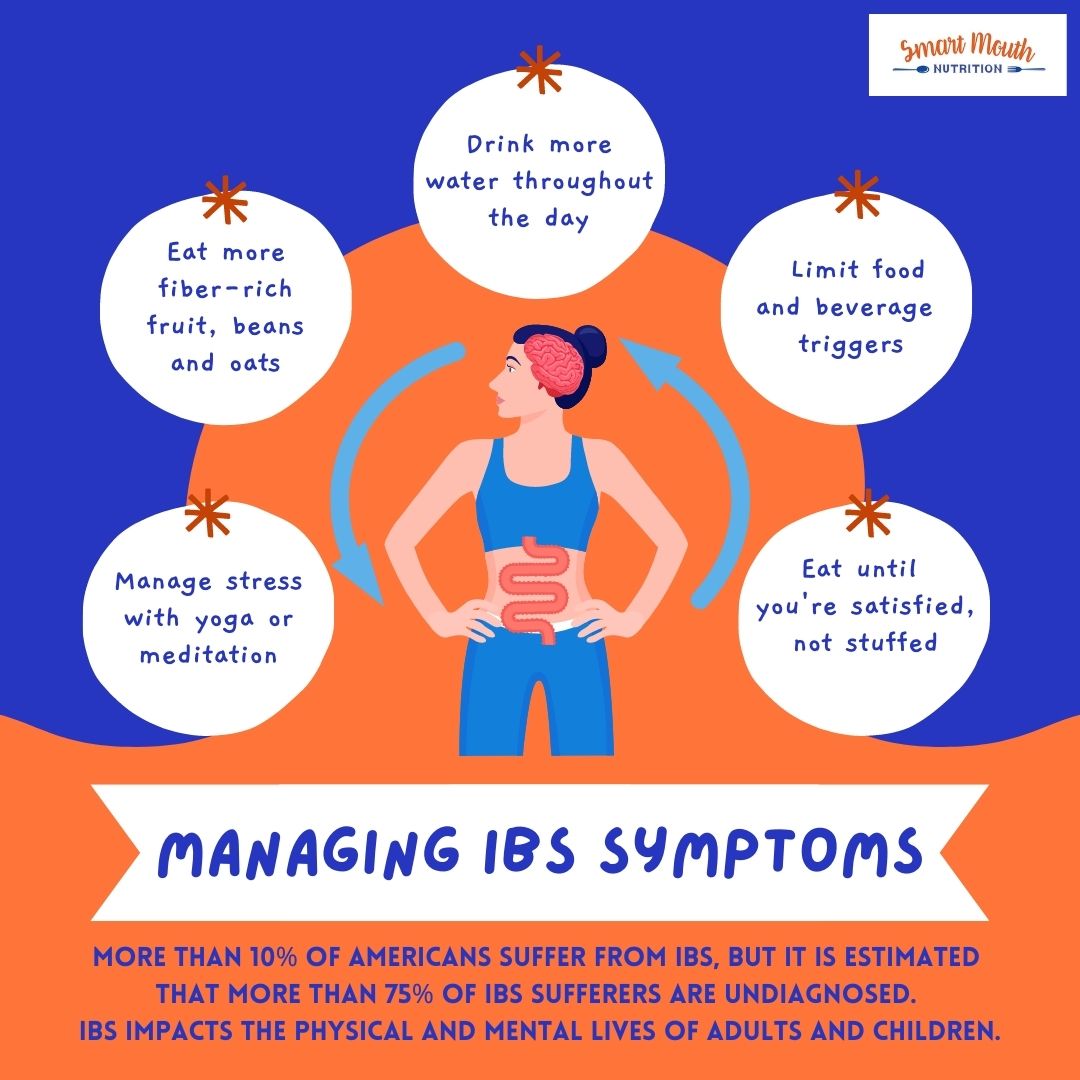Hello, April and the lure of warmer weather! I love winter, but this one has seemed to drag on… and on. I’m always ready for a new season to start, especially one that means new fresh seasonal produce and being outdoors more! And in addition to ushering in a new season, April is also IBS Awareness Month.
What is IBS?
Irritable Bowel Syndrome (IBS) is characterized by abdominal pain and/or discomfort and chronic or frequent bouts of diarrhea, constipation, or a combination of both. It is estimated that IBS impacts about 5-10% of individuals worldwide, and there are likely many more people who suffer these GI symptoms without even realizing they have IBS. For some individuals, these symptoms are so severe that they can interfere with work or school, social activities and even relationships. So much so that the International Foundation for Functional Gastrointestinal Disorders (IFFGD) estimates that activity is restricted on an average of 73 days out of the year due to IBS symptoms.
IBS affects adults and children of both genders, although prevalence appears to be higher in women. Frustratingly, IBS may be misdiagnosed or even ignored by healthcare professionals for years. In fact, one recent survey by IFFGD found that nearly 2000 participants reported that their IBS diagnosis was made more than 6½ years after symptoms began!
What causes IBS?
While the While the exact cause of IBS remains unclear, we do know that the gut, brain and nervous system are connected and a disturbance in this connection may result in symptoms. And while stress isn’t a direct cause of IBS, all of the emerging research around the brain-gut relationship shows us that stress can trigger or worsen symptoms in individuals.
Because the causes and symptoms of IBS vary from person to person (and time to time), there is no one treatment. However, there are a handful of lifestyle changes you can incorporate to help relieve symptoms–like managing stress, removing food triggers, practicing yoga or meditating, getting gentle exercise regularly (especially during symptom flare-ups) and eating small meals.
How can I improve IBS symptoms?
As for diet, here are some general dietary recommendations that may help relieve IBS symptoms:
- Add more dietary fiber, especially soluble fiber from beans, fruit and oats/oatmeal
- Eat more slowly and more regularly (as in regular mealtimes)
- Eat smaller meals
- Drink more water, aiming for about 8 cups per day
- Limit caffeine to 2 cups per day
- Reduce alcohol intake
- Avoid or limit carbonated beverages
- Eat until satisfied (not until full!)
- Avoid or remove trigger foods
When adding more fiber to your diet, just be sure to add slowly. Adding too much fiber too quickly can cause more gas and symptoms (which is NOT what you want!). And be sure to drink more water to help your body move that fiber through.
What about an elimination or FODMAPs diet?
If you experience IBS symptoms and suspect that certain foods make symptoms worse, an elimination and re-introduction diet can help identify trigger foods. A registered dietitian-nutritionist can help you navigate an elimination diet safely and effectively. And many clients find significant IBS relief with a low-FODMAPs diet. You can read more about a low-FODMAPs diet here or stay tuned for a post later this month about this IBS diet.
For more information on managing IBS or trying an elimination/re-introduction diet like FODMAPs, reach out to us at Smart Mouth Nutrition or your preferred professional healthcare provider.








0 Comments